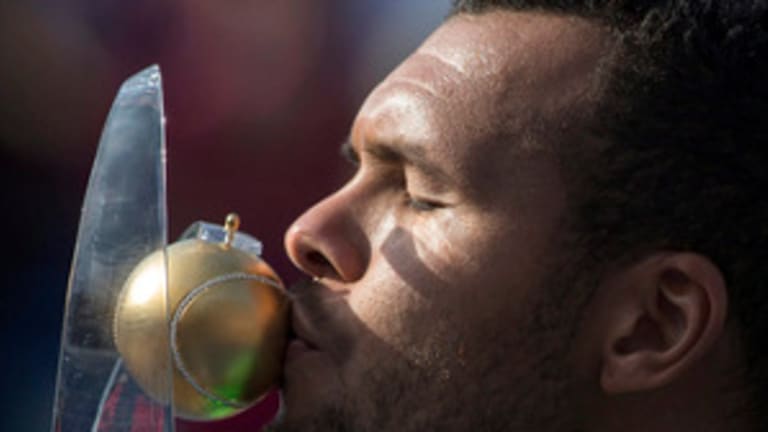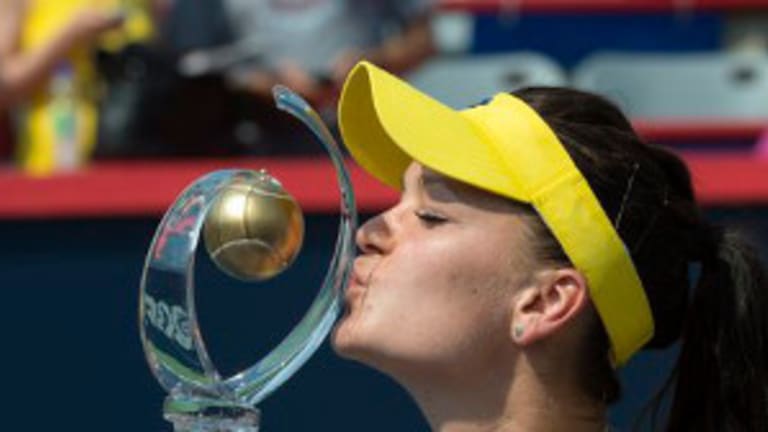There’s no stopping now on the road to New York. The pros spent the last few days heading south from Canada to the outskirts of Cincinnati, Ohio—more likely on a plane, or a private jet, than the fabled, and apparently mothballed, blue U.S. Open Series bus. Before we join them, I’ll take a last look back at the weekend in Montreal and Toronto. Here are four things that stood out.
First Ball In, 8/11: Caught at the Finish Line
By Aug 11, 2014The Business of Tennis
Jannik Sinner dominates ATP prize money leaders for 2024 with 19.7 million dollars
By Dec 26, 2024Australian Open
Simona Halep withdraws from Auckland, Australian Open qualifying with knee and shoulder pain
By Dec 26, 2024Your Game
Racquet Preview: Wilson Clash v3
By Dec 26, 20242024 Year in Review
Top 5 Best Quotes of 2024, No. 2: Naomi Osaka weighs in on Kendrick-Drake feud in Rome
By Dec 26, 2024Spin it Forward: 2025 Previews
Mirra or Mensik: Which young gun will have the best 2025 season?
By Dec 26, 2024Spin it Forward: 2025 Previews
Jessica Pegula is still standing
By Dec 26, 2024Spin it Forward: 2025 Previews
Ben Shelton: A happy warrior’s year of learning
By Dec 25, 2024Social
The ultimate present! Ashleigh Barty expecting second child with husband Garry Kissick
By Dec 25, 20242024 Year in Review
Top 5 Best Quotes of 2024, No. 3: At the US Open, Jannik Sinner looks to have the last word in anti-doping case
By Dec 25, 2024First Ball In, 8/11: Caught at the Finish Line
Thoughts on Federer, Venus, Jo, and the weekend from Canada.
Published Aug 11, 2014
Advertising

First Ball In, 8/11: Caught at the Finish Line
© AP
Advertising

First Ball In, 8/11: Caught at the Finish Line
© AP